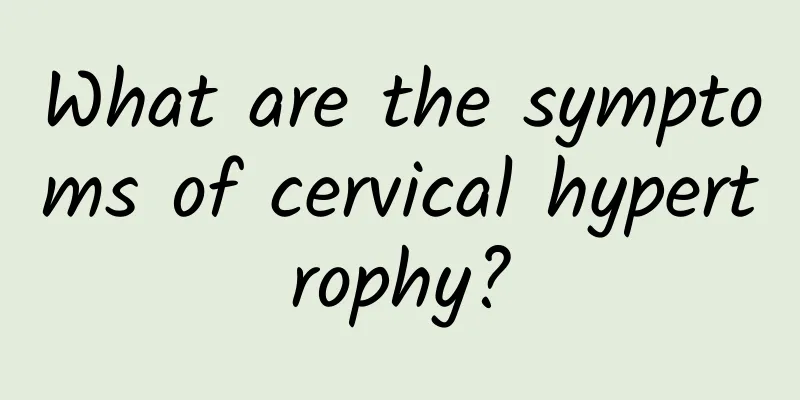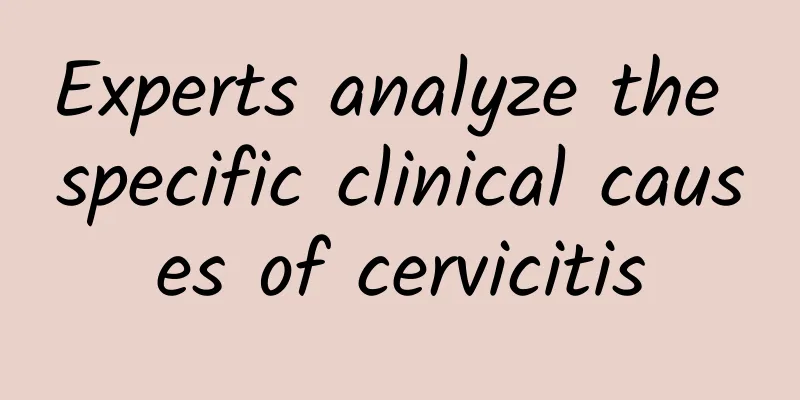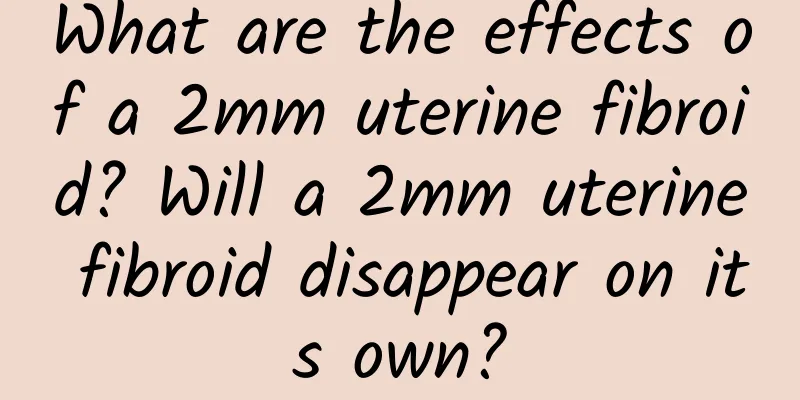Can I still get pregnant with a uterine cyst?

|
Uterine cysts usually do not directly lead to infertility, but the specific situation needs to be evaluated based on the nature, size and location of the cyst. If the cyst is small and has no obvious symptoms, it generally does not affect pregnancy; but if the cyst is large or accompanied by obvious reproductive system abnormalities, it may affect pregnancy, so it is recommended to seek medical attention in time. Uterine cysts are usually divided into simple cysts and complex cysts. Simple cysts are generally harmless. Functional ovarian cysts, for example, will disappear with the menstrual cycle and will not affect pregnancy. However, if it is an endometrial cyst, chocolate cyst or other pathological cyst, it may interfere with the conception process and even increase the risk of ectopic pregnancy and miscarriage. Women with uterine cysts may experience symptoms such as irregular menstruation, dysmenorrhea or pelvic pain, and require detailed examination to clarify the type and severity of the cyst. General diagnostic methods include ultrasound examination, blood marker (such as CA125) test, etc., and surgical exploration is required if necessary. There are currently various methods for treating uterine cysts, such as drug regulation of hormone levels (such as oral contraceptives), minimally invasive surgery (such as hysteroscopy) or traditional surgical treatment (such as cyst removal). The specific plan needs to be determined according to the doctor's advice. Uterine cysts are usually divided into simple cysts and complex cysts. Simple cysts are generally harmless. Functional ovarian cysts, for example, will disappear with the menstrual cycle and will not affect pregnancy. However, if it is an endometrial cyst, chocolate cyst or other pathological cyst, it may interfere with the conception process and even increase the risk of ectopic pregnancy and miscarriage. Women with uterine cysts may experience symptoms such as irregular menstruation, dysmenorrhea or pelvic pain, and require detailed examination to clarify the type and severity of the cyst. General diagnostic methods include ultrasound examination, blood marker (such as CA125) test, etc., and surgical exploration is required if necessary. There are currently various methods for treating uterine cysts, such as drug regulation of hormone levels (such as oral contraceptives), minimally invasive surgery (such as hysteroscopy) or traditional surgical treatment (such as cyst removal). The specific plan needs to be determined according to the doctor's advice. If you are planning to get pregnant but have a history of uterine cysts, it is recommended that you undergo a comprehensive gynecological evaluation before trying to conceive. During the treatment or management of cysts, you should maintain a healthy lifestyle and avoid excessive fatigue and stress. Promote physical recovery through dietary conditioning, such as increasing the intake of foods rich in high-quality protein and vitamins (such as dark green vegetables, fish, etc.); insist on proper exercise to regulate endocrine function and maintain an optimistic attitude. If the symptoms disappear after the treatment and the reproductive function is normal, the chance of pregnancy is higher. In the event of abnormal secretions, severe abdominal pain or unexplained bleeding, you should seek medical attention as soon as possible to ensure the health and safety of the mother and fetus. |
<<: Irregular menstruation and sudden bleeding in urine
>>: Symptoms of spontaneous abortion due to cervical pregnancy
Recommend
What foods should I eat if I have cervical warts?
Cervical warts are a very common disease nowadays...
What complications may pelvic inflammatory disease cause?
Pelvic inflammatory disease is a type of gynecolo...
Why is it said that thick endometrium is prone to recurrence?
When it comes to understanding the causes of endo...
What are the mid-term exercises for cervicitis?
Cervicitis is a common disease among women of chi...
What should you pay attention to before doing painless abortion surgery? What preparations should you make before doing painless abortion surgery?
1. Choose a professional hospital Before choosing...
What is the cause of the mass in the pelvis?
Pelvic masses may be caused by physiological reas...
What are the symptoms of adnexitis?
Symptoms of adnexitis mainly include lower abdomi...
What are the causes of irregular menstruation? These 4 causes are very common!
Among gynecological diseases, irregular menstruat...
What is the best treatment for Bartholinitis?
Bartholinitis is a common disease among women. In...
How to diagnose cervical warts
Cervical warts are sexually transmitted diseases ...
What causes dysmenorrhea and irregular menstruation?
Irregular menstruation in women, dysmenorrhea is ...
How long does it take to get the highest cure rate for hyperprolactinemia?
Treatment for high prolactin. Prolactin is a poly...
Treatment process of congenital absence of vagina
Although the incidence of congenital absence of v...
Prevention of irregular menstruation should focus on regulating life
Irregular menstruation brings a lot of inconvenie...
Early symptoms of vaginitis: 3 signs of vaginitis that women must know
For most women, vaginitis is a very annoying and ...









